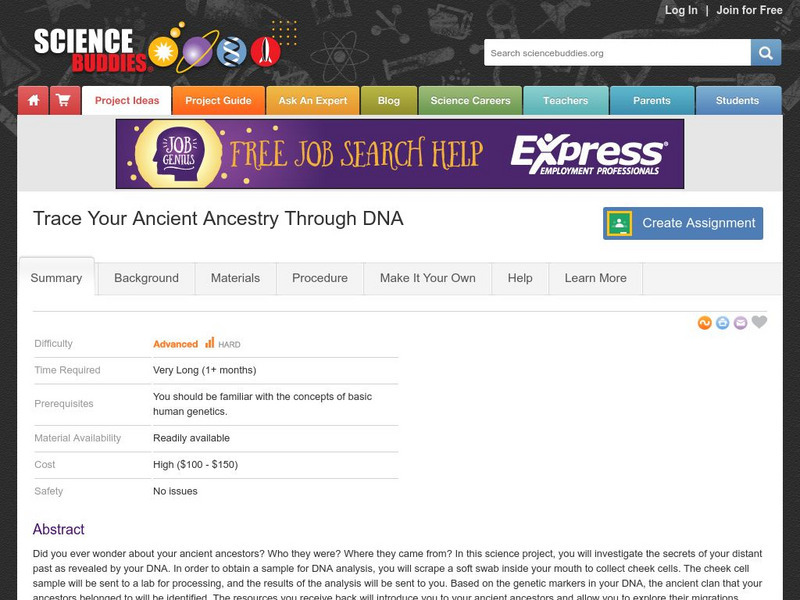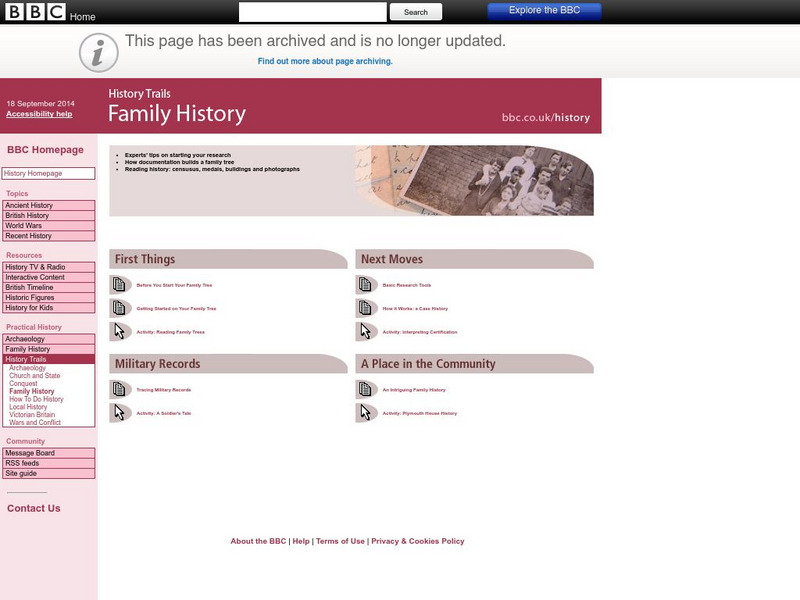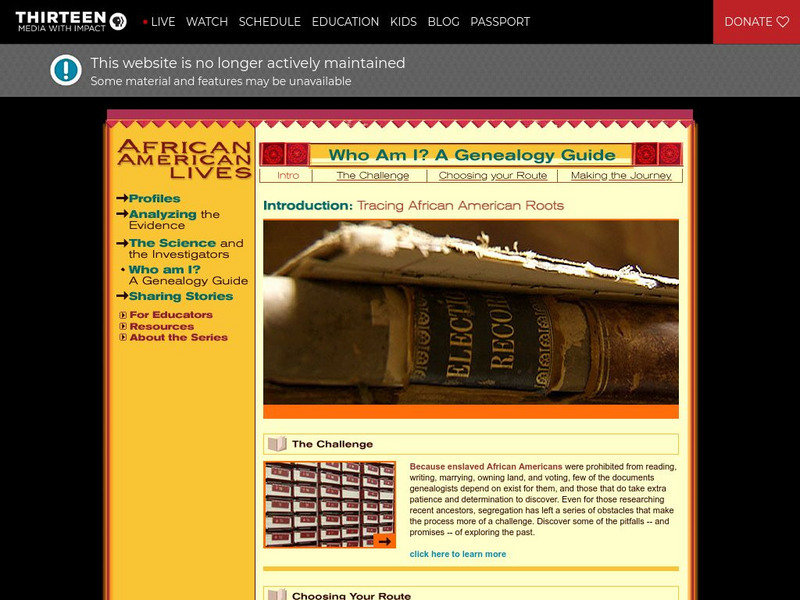Hi, what do you want to do?
Curated OER
Tracing Our Own Family Pilgrimages
The Pilgrims may have arrived in North America by way of the Mayflower, but chances are, your class members' ancestors came to the United States in another way. Guide them through an exploration of their own heritage, countries of...
Curated OER
Immigration in the United States
Students examine the theory of immigration and how their ancestors became part of this Nation. They determine how immigration affected the United States through research and language activities. They construct a timeline of a time in...
BW Walch
Unexpected Family History
The history of the northern states' involvement in the slave trade is not widely known. This resource uses the PBS documentary, Traces of the Trade, and the nonfiction book, Children of the New England Slave Trade, to examine this aspect...
Curated OER
Tracing the Origins of Man
Students discuss Hominid evolution through various websites and other resources. They examine online fossil skulls, discuss the use of tools by ancient man, and look for examples of sophisticated tools built by man.
Curated OER
We Are Family
Second graders research their family history and how it connects them to the past. They identify their ancestors, graphically organize relatives in a family tree, and chart significant events in their lives on a timeline.
Curated OER
The Pilgrims
Students use distance measuring tools to follow directions and chart the path the pilgrims made from Plymouth, England to Boston, Massachusetts. In this Pilgrim voyage lesson, students use a map to chart the distance traveled by the...
Curated OER
Tracing Our Own Family Pilgrimages
Students observe a world map and are introduced to vocabulary like: cities, continents, rivers, lakes, and oceans. They discuss the names of the cities they live in and locate them on the map; then using a colored pushpin indicate: the...
Curated OER
Ellis Island Online
Students research their ancestors by visiting a number of online resources. They read personal immigration stories and begin creating their own family tree.
Curated OER
Back to the Farm
Read up on farming and ranching and connect this information to your learners' lives. After reading, send class members home to fill out a family tree and trace their family history, focusing on farming and ranching backgrounds. Once...
Curated OER
From America, With Love
Students research the experiences of specific immigrant groups in the United States. Letters are written from imaginary immigrants to relatives in their countries of origin, including historically accurate details.
Curated OER
English Vocabulary Skills: AWL Sublist 6 - Exercise 2b
In this online interactive English vocabulary skills worksheet, students answer 10 matching questions which require them to fill in the blanks in 10 sentences. Students may submit their answers to be scored.
Curated OER
Family History
Students create photographic family histories. In this technology skills lesson, students create family trees with digital photographs that they take of the family members.
Curated OER
Visual Arts, Literary Arts, and Performing Arts: Their Connection and Place in America's Minority Culture
Students explore the rich, varied, and full artistic culture of each of these three minority groups, Native Americans, Chicanos, and African Americans. They explore art through dance, music, literature, and many other different mediums....
Science Buddies
Science Buddies: Trace Your Ancient Ancestry Through Dna
In this science project, you will investigate the secrets of your distant past as revealed by your DNA. In order to obtain a sample for DNA analysis, you will scrape a soft swab inside your mouth to collect cheek cells. Based on the...
BBC
Bbc History Trail: Family History
Learn how to create a family tree. Also get tips from experts on researching your own ancestry, including working with census material, military records, and certifications.
PBS
Wnet: Thirteen: African American Lives: Who Am I? A Genealogy Guide
Tracing African American history may be difficult, but the work of historian Henry Louis Gates proves that it isn't impossible. With this resource, learn how to plan a project on your family history.




















